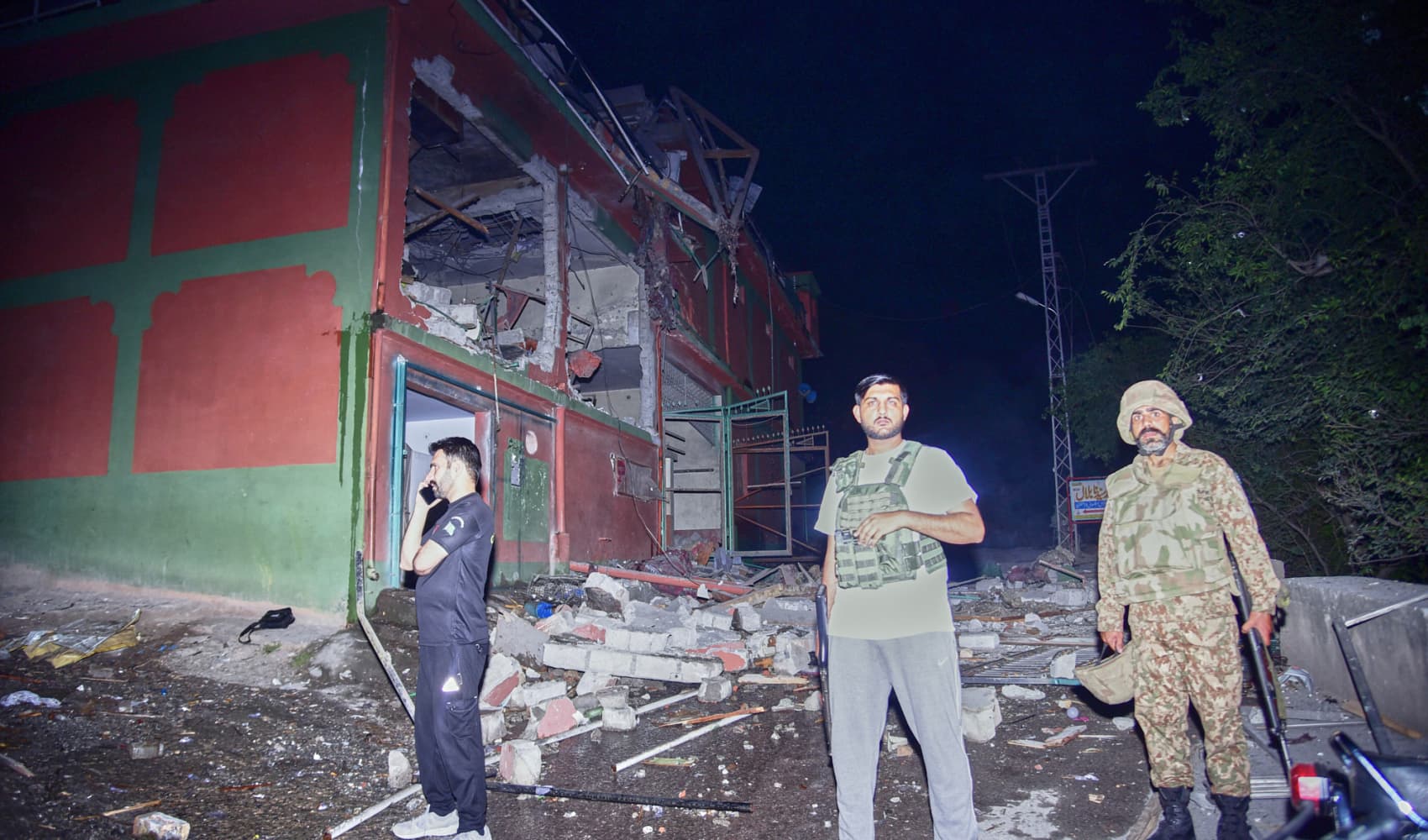India Strikes Pakistan: Kashmir Killings Escalate Tensions
India Strikes Back: Military Action in Pakistan Sparks Escalating Tensions After Kashmir Killings
Introduction: A Volatile Situation Unfolds
The situation in Kashmir has taken a dangerous turn. News just broke that India has reportedly conducted military strikes within Pakistan, escalating tensions following a deadly militant attack in the Pahalgam region of Jammu and Kashmir. What does this mean for regional stability, and how did we get here? Let's dive into the details.
The Pahalgam Attack: A Catalyst for Action
Last month, a horrific attack in Pahalgam claimed the lives of 26 people. This tragedy served as a major catalyst for the recent events. Can you imagine the grief and anger felt by the victims' families and the entire nation?
The Human Cost of Conflict
It's easy to get caught up in geopolitical strategies and political rhetoric, but we must never forget the human cost of conflict. Every life lost is a tragedy.
India's Response: "Holding Attackers Accountable"
Following the Pahalgam attack, India issued a strong statement, asserting its commitment to hold those responsible accountable. The recent military strikes are being presented as a fulfillment of that promise. Is this justified? That's a question the world is now grappling with.
“We are living up to the commitment that those responsible for this attack will be held accountable,” India stated.
Pakistan's Reaction: Condemnation and Retaliation?
According to reports, Pakistan has reacted strongly to the Indian strikes, characterizing them as an "act of war." This raises serious concerns about potential retaliatory actions and further escalation. Where do we go from here?
Analyzing the Military Strikes: What Do We Know?
Specific details about the nature and scale of the military strikes remain unclear. What kind of targets were hit? What weapons were used? This information is crucial for understanding the potential impact and implications of the operation. We need clarity and transparency from both sides.
Geopolitical Implications
Beyond the immediate impact, these strikes have significant geopolitical implications for the entire region. They could potentially redraw alliances and reshape the balance of power.
Historical Context: A Region Fraught with Conflict
The Kashmir region has a long and complex history of conflict. Understanding this historical context is essential for comprehending the current situation. Think of it as trying to understand the roots of a tree – you need to examine the soil and the environment it grew in.
International Reactions: The World Watches Closely
The international community is watching these developments with growing concern. Key global players will likely issue statements urging restraint and calling for de-escalation. The role of international mediation is also crucial in preventing further conflict.
The Role of the United Nations
The United Nations has a vital role to play in mediating the conflict and promoting a peaceful resolution. Can they effectively bring both sides to the table?
The Impact on Local Populations: A Humanitarian Crisis?
Escalating tensions and military actions inevitably impact local populations in Kashmir. Increased security measures, displacement, and restricted access to essential services can create a humanitarian crisis. The safety and well-being of civilians must be a top priority.
The Information War: Narratives and Propaganda
In times of conflict, information warfare becomes increasingly prevalent. Both sides will attempt to control the narrative and shape public opinion through propaganda and misinformation. It's crucial to critically evaluate information and avoid spreading unverified claims.
De-escalation Strategies: Pathways to Peace
Finding a pathway to de-escalation is paramount. Diplomatic negotiations, confidence-building measures, and a commitment to dialogue are essential steps towards restoring stability. But how can trust be rebuilt after such a significant escalation?
The Importance of Dialogue
Open and honest dialogue is the only way to bridge divides and find common ground. It's like tending to a garden – you need to nurture it with care and attention.
Future Scenarios: What Lies Ahead?
Several potential scenarios could unfold in the coming days and weeks. Will the situation escalate further into a full-blown conflict? Or will diplomatic efforts succeed in de-escalating tensions? The future remains uncertain, but one thing is clear: the stakes are incredibly high.
The Role of Media: Responsible Reporting is Crucial
The media plays a critical role in informing the public and shaping perceptions of the conflict. Responsible reporting that avoids sensationalism and focuses on factual information is essential. Objective journalism can contribute to de-escalation.
Conclusion: A Precarious Moment
The recent military strikes by India in Pakistan mark a significant and dangerous escalation in tensions following the Pahalgam attack in Kashmir. Pakistan's strong reaction raises concerns about potential retaliation. The international community is watching closely, hoping for de-escalation and a return to dialogue. The safety and well-being of civilians must be paramount as we navigate this precarious moment. Will diplomacy prevail, or are we on the brink of a larger conflict? Only time will tell.
Frequently Asked Questions
What triggered the current escalation of tensions?
The primary trigger was a militant attack in Pahalgam, Jammu and Kashmir, in which 26 people were killed. This led to India conducting military strikes against Pakistan, claiming to hold those responsible accountable.
What was Pakistan's reaction to the Indian military strikes?
Pakistan reportedly condemned the strikes, referring to them as an "act of war," which suggests a potential for retaliatory actions and further escalation of the conflict.
What are the potential geopolitical implications of these strikes?
The strikes could significantly impact the regional balance of power, potentially redrawing alliances and creating new security challenges. International relations in the region could become more complex.
What role does the international community play in resolving the conflict?
The international community, particularly the United Nations, is expected to urge restraint and call for de-escalation. International mediation efforts are crucial in facilitating dialogue and finding a peaceful resolution to the conflict.
How can the conflict be de-escalated?
De-escalation requires diplomatic negotiations, confidence-building measures, and a sincere commitment to dialogue from both sides. Rebuilding trust and addressing the underlying causes of the conflict are essential for long-term stability.
